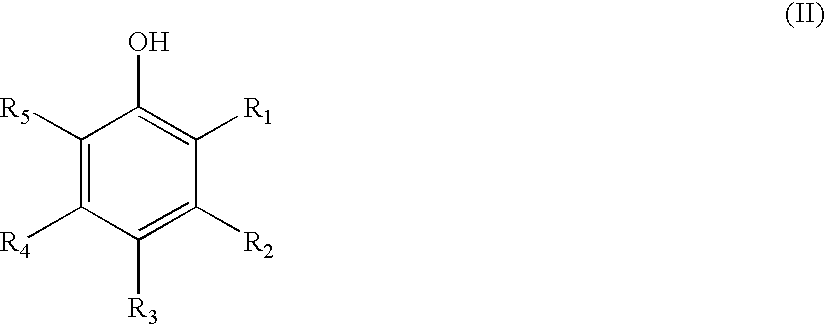Method of rapid hair dyeing
- Summary
- Abstract
- Description
- Claims
- Application Information
AI Technical Summary
Benefits of technology
Problems solved by technology
Method used
Image
Examples
examples
[0231] The following examples illustrate oxidative dye compositions according to the present invention and methods of manufacture thereof.
Examples of Emulsion Formulations 1-10
[0232]
FormulationIngredient12345678910Sodium sulphite0.10.10.10.10.10.10.10.10.10.1Ascorbic Acid0.10.10.10.10.10.10.10.10.10.1Ammonium Carbonate3.06.02.0—4.08.02.0—4.06.0Potassium Hydrogen——1.52.0——2.02.0——CarbonateAmmonium Acetate———2.0———2.0——Ceteareth-251.0——————1.01.01.0Steareth-100—1.01.0———————Sodium Palmytoyl————1.0—————SarcosinateSodium Carboxymethyl———1.0——————Lauryl GlucosideSodium Lauryl Sulfate—————1.0————Behentrimonium Chlorid——————1.0———Cetyl Alcohol1.6—2 1.51.51.52.52.51.61.6Stearyl Alcohol3.3—2 1.51.51.52.52.53.33.3Steareth-2—5 1 ———————Sodium Benzoate0.10.10.10.10.10.10.10.10.10.1Phenoxyethanol0.10.10.10.10.10.10.10.10.10.1EDTA (tetrasodium salt)0.10.10.10.10.10.10.10.10.10.1Sodium Glycinate2.05.03.01.0—————3.0Glutamic Acid—————6.02.0———Glycine———1.02.0Glucosamine——————2.04.04.03.0Para-p...
PUM
| Property | Measurement | Unit |
|---|---|---|
| Fraction | aaaaa | aaaaa |
| Time | aaaaa | aaaaa |
| Percent by mass | aaaaa | aaaaa |
Abstract
Description
Claims
Application Information
 Login to View More
Login to View More - R&D
- Intellectual Property
- Life Sciences
- Materials
- Tech Scout
- Unparalleled Data Quality
- Higher Quality Content
- 60% Fewer Hallucinations
Browse by: Latest US Patents, China's latest patents, Technical Efficacy Thesaurus, Application Domain, Technology Topic, Popular Technical Reports.
© 2025 PatSnap. All rights reserved.Legal|Privacy policy|Modern Slavery Act Transparency Statement|Sitemap|About US| Contact US: help@patsnap.com



